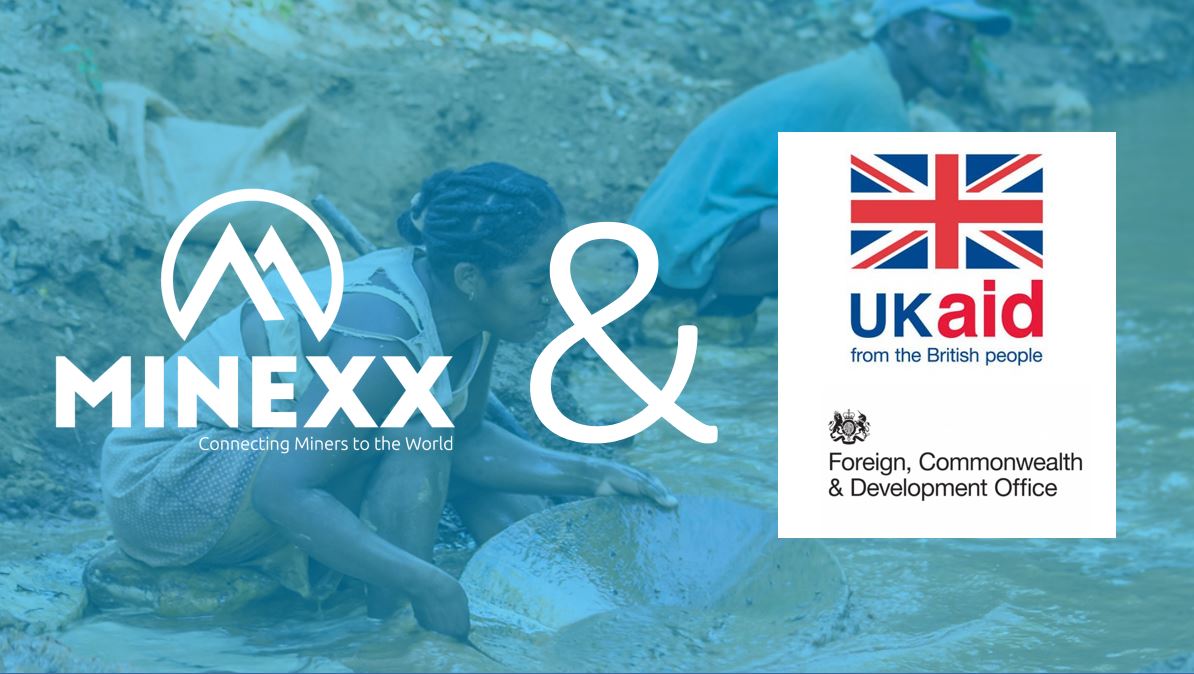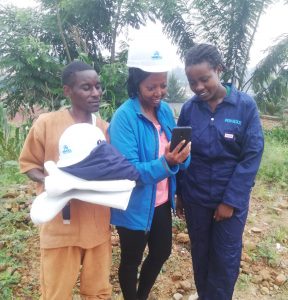The scale of informal, artisanal mining is massive — across communities, across countries, and across the minerals themselves. We call it the world’s most unsophisticated $100bn market and we are setting about redesigning it.
Through the Frontier Technologies Programme, Minexx has been testing various aspects of our approach, namely to secure the supply chain from the moment the mineral comes out of the ground to when it reaches the end-consumer. We do this with blockchain technology.
The first successful Sprint involved a project at mine sites in South Kivu, DRC, which tested how cooperatives, team leaders, and miners accept digital payments through the Minexx platform.
Through this approach miners were able to confirm the exchange of ore for income via mobile payment, ensuring the miners got paid fairly and on time. Whereas previously cash payments are made to middlemen with no visibility on end production.
In total this approach led to USD$250k of an exported mineral — namely cassiterite — from DRC using digital, blockchain certified payments. This was a world first.
Through the second Sprint, as part of this strategic partnership with the FCDO, the Minexx team has been investigating how our blockchain platform — with its global application — can work with other mineral groups.
Gold mining is one of the oldest industries in the world — going back 7,000 years. Today, gold plays an important part of the international market as a so-called “safe haven” investment as well as being used in electronics and jewellery. Globally, more miners are in artisanal gold than any other mineral. Here, we share our main learnings.

Smuggling dominates route to market
In Feb 2021 the team undertook a fact-finding mission to Burkina Faso. This landlocked country is Africa’s fifth-largest producer of gold — and many of its mine sites are informal. Remarkably, of the $1.5bn of gold exported from Burkina Faso, 99% is exported illegally.
This is not just a challenge for Burkina Faso with many other countries in a very similar position in terms of the quantities of minerals that leave the country illegally — 99% of DRC’s gold is smuggled out of the country; Nigeria lost $3bn in royalties from 2012 to 2018 due to illegal gold mining and $4.1bn of gold smuggled out of Sudan to UAE alone in 2019 alone.
In fact, African governments lose more money from mineral tax evasion than they gain in foreign aid — this is mainly driven by the gold market.
Government gold buying programmes are on the rise
To combat mineral smuggling, Governments in Zambia, Tanzania, Sudan, and Burkina Faso have all initiated state buying gold programmes. Here, the government purchases gold directly from miners to create a formal route to market. With a new EU law introduced in January 2021, to sell gold to EU countries a country such as Burkina Faso must prove OECD compliance, adding further challenges to reach a formal international market..
The reality is, many of these governments lack the resources and the technologies to effectively regulate the industry and manage the transactions and buying programmes on the ground.
The largest source of mercury emissions
A key risk in gold mining is the use of mercury. Small-scale gold mining is the largest consumer of mercury worldwide. Miners inhaling mercury leads to neurological damage and other health issues and enables it to get into the food chain.
The Minamata Convention was introduced to address this and eradicate mercury use but little on the ground progress has been made with the lack of an appropriate alternative. Mercury-free technology does exist but must be financed and introduced carefully to get buy-in from miners.
The government of Tanzania is registering all mercury importers in its aim to reduce mercury consumption by 30% by 2025.
The future of small-scale gold mining
So it is clear from our fact-finding mission — and from these statistics — that the illegal trade in minerals is a huge issue, not least for the artisanal miners who make a living from this activity but also for the governments which are losing out on tax receipts.
This is about moving this from the informal to the formal. The next step is working with governments and mineral buyers to formalise gold sourcing. This in turn will bring financial flows into the formal economy.
For the miners, it enables formal pre-financing products and direct digital payments. This means that, through transacting directly with miners, Minexx can finance, for instance, mercury-free equipment.
So it is better for miners, it is better for governments and ultimately it is better for the end investors in gold or end consumers of electronics and jewellery, that the gold’s provenance is known.
We want the pendulum to swing towards a premium being paid for gold sourced in the right, more formal way, and we believe that technology provides the key to this.






